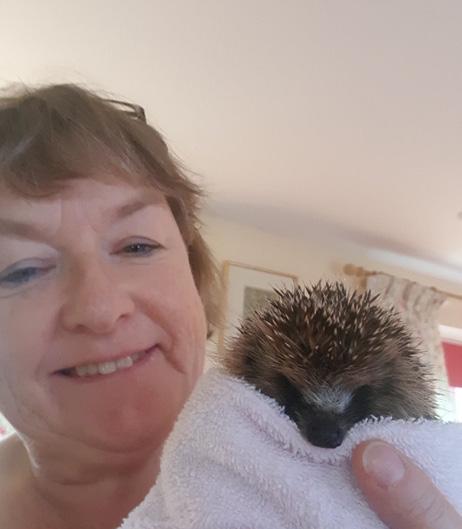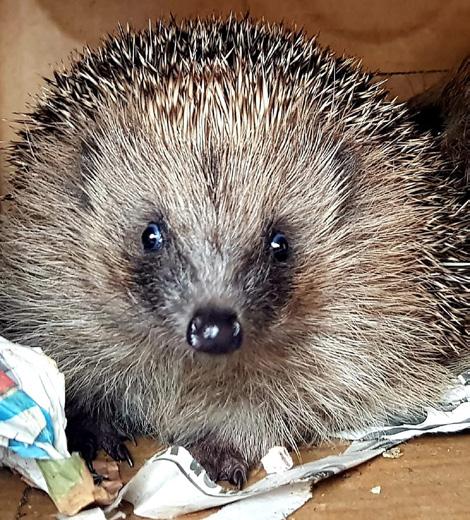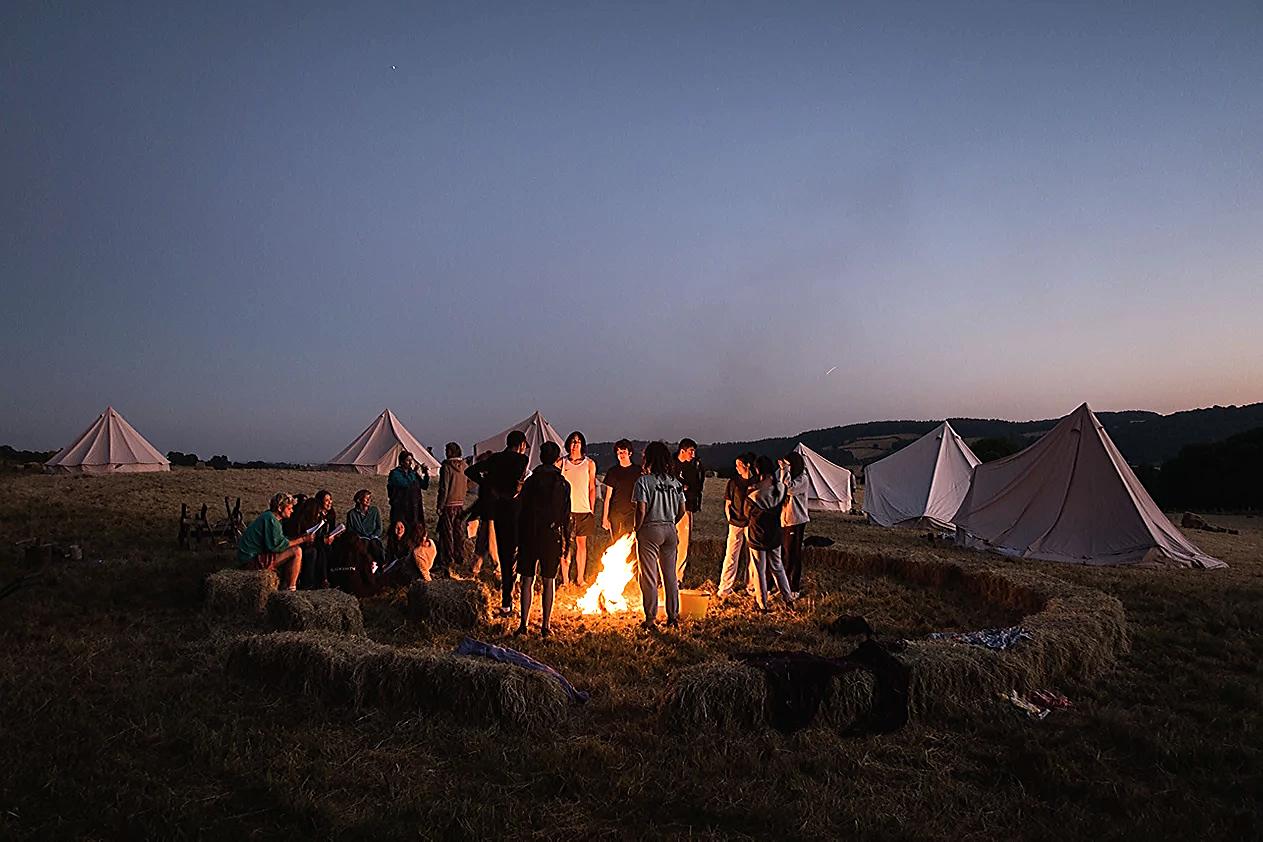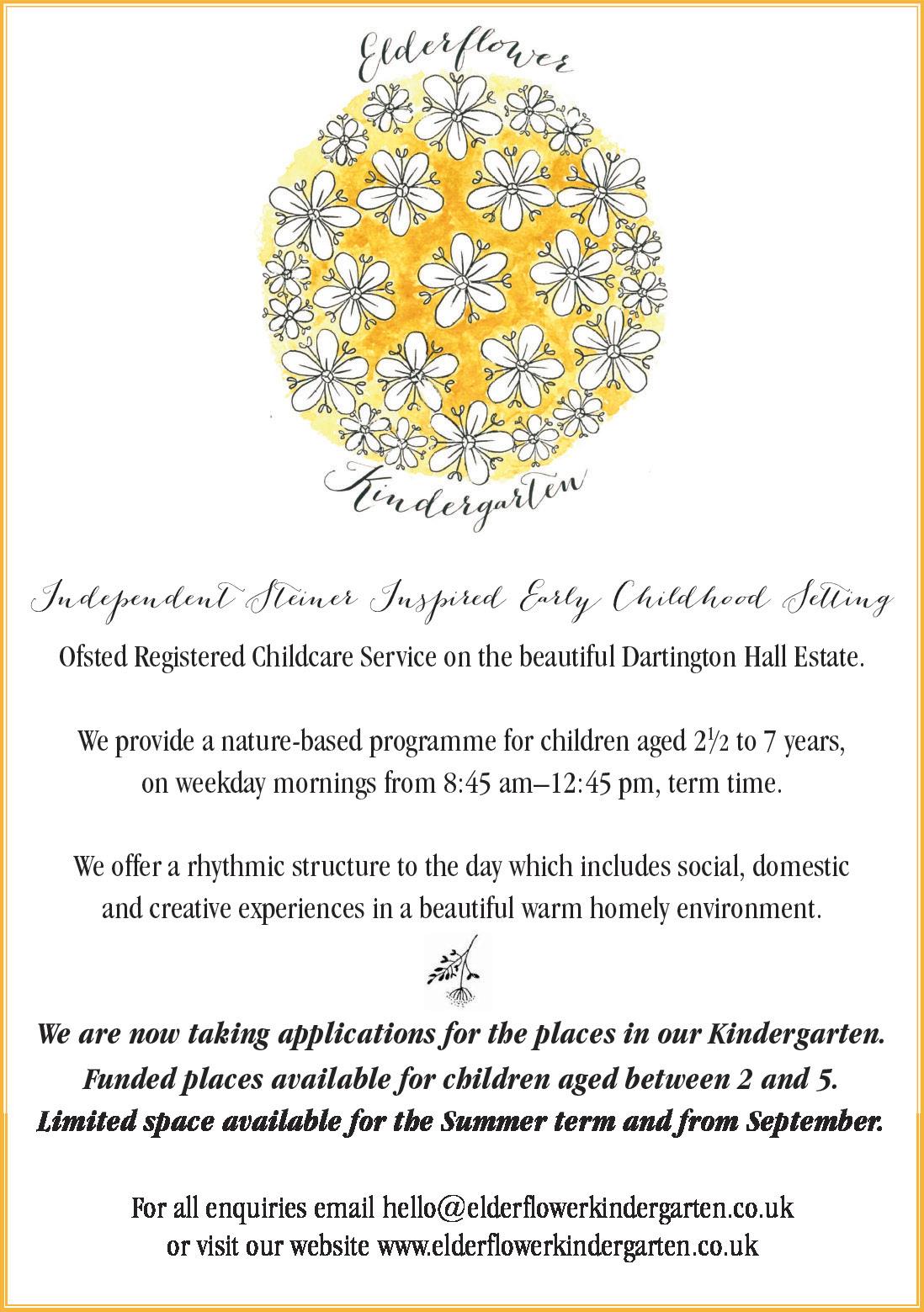
9 minute read
PRICKLES IN A PICKLE
TO misquote a well-known film, ‘If you build it, they will come’ certainly applies to us. As with many people that fall into wildlife rescue, we found that it found us rather than the other way around. I have always been animal mad and constantly bringing broken feathered or furred souls’ home to be mended. When I arrived home with a Tawny Owl, my Mother uttered the immortal words: “I would have thought you would have grown out of this by now!”, I was 31 at the time. I am now in my 60th year and my passion for wildlife and especially hedgehogs, has increased rather than diminished. My partner, Alan, comes from good old-fashioned Devon farming stock. His views on some issues have been different to mine but let us just say that some of these views have mellowed in time! His knowledge of the countryside and all the creatures that live within it knows no bounds. Plus, he is good at making various homes, houses, and pens. Between us we make a decent team. The week we decided to move in together brought about an incident that was to change everything for us in the future, we did not know this at the time! This was 12 years ago. I was carrying out a spring clean of the stables we rented when my shavings fork picked up a nesting hedgehog and her 4 tiny hoglets. All I knew was that I had to put them immediately back where they came from and leave well alone. Hedgehog mothers do not take kindly to disturbance. I was concerned that they may be abandoned and perish, so Alan and I kept watch over the situation, from a distance for a couple of days. Our worst fears came to fruition on the second morning when we found distressed hoglets scattered all over the stable ‘peeping’ for mum. We gathered them up, put them back in the nest and rechecked in the evening. They were all out of the nest again, cold, and only 2 of them. We sorted through the rest of the shavings, like the graded grainers on the flour advert, with the aid of a head torch but could not find the other 2. We took them home, JUDY THOMSON together with her partner Alan, from Stoke Fleming near Dartmouth, manage ‘Prickles in a Pickle’ a home based hedgehog rescue that takes in injured, poorly and underweight hedgehogs for care and release, plus other animals and bird too. Judy tells us more...

Advertisement
warmed them up and with the aid of a glass ear dropper, some kitten milk, and the will to get them to live, we awoke every 2 hours through the night to feed and toilet them. We learned a lot from these little creatures, Piglet and Roo we called them. They grew up and left home and the rest as they say is history. We had no idea at this point how dire things were for the humble hedgehog. In the 1950s there was an estimated 30million, we are now down to our last 500,000 approximately. A high proportion of this loss has been in the last 2 decades. When you consider that out of every nest of babies, usually between 3 and 6, only 1 will survive to adulthood. They are sexually mature by their second year and in the wild live to about 3 or 4 years if they are lucky. Add to these poor odds the obstacles put in front of them and survival, it is no wonder we have lost so many. Roads, pesticides, herbicides, tiny non interconnecting gardens with no wild areas, garden machinery, modern agricultural practice, badgers, global warming to name only some.
Caught on camera at Sharpham F OXES, a tawny owl and a hedgehog are amongst the creatures caught unawares by hidden cameras on Sharpham Estate, around the site of the Sharpham Trust’s rewilding project which began earlier this year. The Trust near Totnes was awarded £177,400 from The National Lottery Heritage Fund to make more space for wildlife and take action for nature in a three-year project called Sharpham Wild for People. The grant will help in turning the Sharpham Estate organic, re-wilding parts of its historic landscape and helping more people engage with the nature there – from members of the public to students of conservation learning to use camera traps. “These first pictures of hedgehogs are amazing because as far as we know this is the first record of them being this far into the estate for over 20 years.” said Simon Roper, from Ambios Ltd, the nature conservation & education organisation which deployed the cameras via its trainees. “Although our rewilding project has only just begun it is so encouraging to get this image of an animal likely to benefit from our future work in restoring nature. Sharing these pictures is a step towards connecting people with nature,” he added. An important aspect of the project Sharpham Wild for People is the exploration of organic farming techniques such as less-intensive grazing, in order to support biodiversity. Ambios Ltd already operates Lower Sharpham Farm, an organic farm on the Sharpham Estate, and has just signed a tenancy to take over a further 50 acres of Sharpham parkland, which will be restored to parkland and wood pasture (a habitat with trees that would have characterised Sharpham parkland at the time of its design, in 1762). An additional 137 acres of land has been leased to farmer David Camp for organic conversion. “A key mission for Sharpham is to care for wildlife and enable people to connect with our natural world,” said Trust Director Julian Carnell. “Because of this project, almost all the estate land will be managed organically which has proven benefits for wildlife,” he said. The project was to include school visits, public events, volunteering & training opportunities this summer and the pandemic has meant that these have been postponed. However, the Trust hopes to start some of these in September, and is pressing ahead with other project goals such as introducing livestock, fencing and surveying wildlife.

Ironically, it seems that ‘new build’ estates may hold the key to many wildlife species being able to thrive. Integral bat and Swift boxes, hedgehog highways and built in wildlife corridors are some of the things designers are having to incorporate into their plans. ‘Prickles in a Pickle’ was created to give us a recognisable name. For years we had been just quietly helping hedgehogs and other wildlife, out of our own pockets. As we got busier and busier, we learned more and more by attending courses, networking with other rescues, reading and researching. I am lucky to have a lot of transferrable skills as I am a Registered Nurse, this has helped tremendously. Last year was phenomenal, the number of hedgehogs needing help was increasing day by day and this year we decided to register as a charity. It came to the point that I was literally working to look after the hedgehogs. l You can find Prickles in a Pickle on Facebook.



HILL TRIBE A new Rites of Passage programme for 12-16 year olds
Step up and shine in uncertain times
AS our world changes faster than we ever dreamt possible, Jennifer Stevens and Pollyanna Darling of women-led reforestation charity TreeSisters suggest seven ways to use this time of uncertainty and change to develop our gifts and strengths. 1. Boost your wellbeing listening to the sounds of Nature: right now they are louder, clearer and more needed than ever before! If you can spend some time in your local park, sitting beside a tree, or just closing your eyes and listening to the birds outside your window, this can help centre your thoughts and calm internal turmoil. In a calmer state, your natural creativity and energy can emerge.
2. Sit back and listen: slowing down can also be a way to step up! Despite pressure from your social media feeds, it is perfectly okay to come out of self-isolation without having learnt a new language, mastered cookery or built your own empire. However, this time is a good opportunity to listen deeply to yourself and your loved ones. On average we only ‘listen’ to 50% of what is said to us, so using this time to learn to really listen could have a hugely beneficial impact.
3. Tap into your inner wisdom and power: understand your gifts and build yourself a toolkit to bring them forward …when you listen deeply to yourself, what do you long to offer the world? What are you doing when you feel most yourself and most alive? How could you liberate that energy or activity in service to our planet and all life - and what do you need to do to support yourself in that? If you’re stuck for ideas, try journaling (see point 6). TreeSisters also has many useful free resources for tapping into your inner wisdom here: https://treesisters.org/grow-yourself#paths-to-growyourself
4. Build an Earth-friendly legacy: as the saying goes ~ “The best time to plant a tree is 20 years ago. The next best time is now.” If you have a garden, or access to outside space, why not start your legacy? If you don’t have the ability to plant trees at home, you can donate to a tree planting organisation such as TreeSisters and fund the planting of tropical trees that grow quickly and benefit the whole world!
5. Volunteer your skills: at this time, many small businesses and charities are in need of a helping hand. Often volunteering can be done online from the comfort of your own home. Volunteering gives you an opportunity to share your skills, support your passions and give back to your community
6. Keep a Journal: Weird things are happening every day and the only certainty we have is uncertainty. Writing things down can help you organise your thoughts and process the events of each day. It can increase empathy, reduce stress and unleash creativity. It is also fascinating to document your own experiences and read them through at a later date
7. Make a Plan: after all that listening, time in Nature and journaling, create a vision of how you’d love to contribute to a healthy planet and build a plan. Good plans empower, provide structure and help give us a sense of direction. Right now it may feel impossible to plan anything, but that isn’t true. Build a plan for one of your days at the weekend or for a new craft project. What do you deeply care about and what would bring you joy to contribute, even in uncertain times? Planning helps us to focus on what really matters and bring that to our lives.

1 7 - 23 AU G U ST 2020
ON TH E H I LL , DE VON
Contact: 01 647 252 643 or info@onthehill.camp
For more info visit www.onthehill.camp











